|
Exploring Pluriversal Occupational Sciences: An International PanelWatch the Recording HEREJoin us for a dynamic one-hour panel featuring international thinkers in Occupational Science as they share perspectives on occupation, culture, and social transformation. Speakers will explore their unique contexts and approaches to challenge, enrich, and expand the boundaries of Occupational Science dialogue here in the United States. Attendees will consider how global perspectives can inform more responsive scholarship and practice in the discipline. This event offers a rare opportunity to engage in cross-cultural exchange and envision new possibilities for the future of the discipline.
Meet Our PanelistsJohn Salgado MaldonadoOccupational Therapist, Universidad de Playa Ancha, Chile. Master in Strategic Consulting, Universidad de Valencia, España. IDI Qualified Assessor, United States. 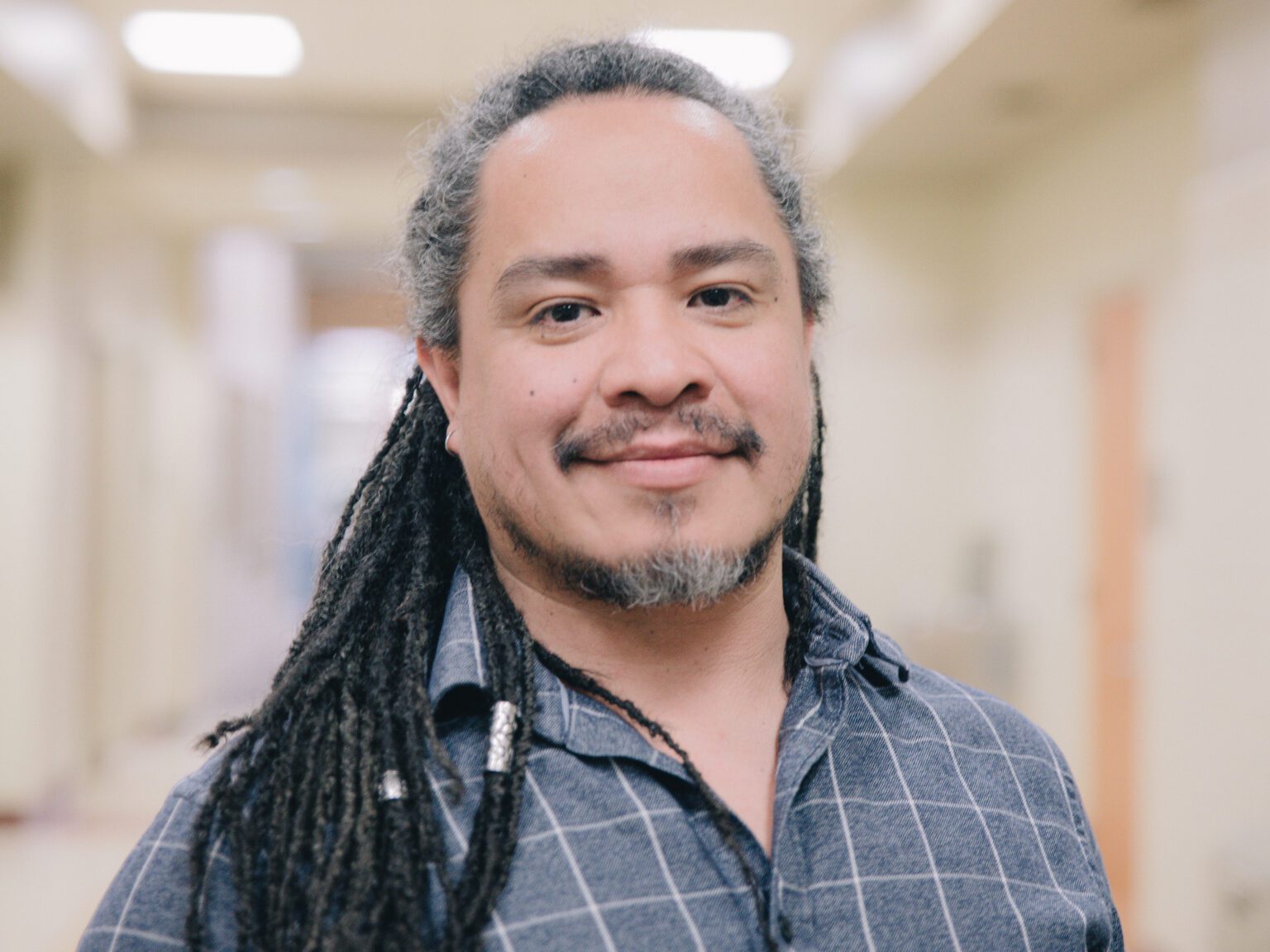 John is an Occupational Therapist with over 20 years of experience working on community-based projects in Chile and the United States, specializing in diverse populations and mental health. He earned his degree from Universidad de Playa Ancha in Chile and a Master’s in Strategic Consulting from Universidad de Valencia, Spain. John is an Occupational Therapist with over 20 years of experience working on community-based projects in Chile and the United States, specializing in diverse populations and mental health. He earned his degree from Universidad de Playa Ancha in Chile and a Master’s in Strategic Consulting from Universidad de Valencia, Spain.Drawing from his own experience as a migrant in the United States, John brings a deep understanding and advocacy for diverse communities through an occupational science lens. He is CEO of Purpose Artisans, a non-profit using the arts to advance social justice, inclusivity, and community engagement. He also serves as a Community Impact Specialist at Woodland Centers in Willmar, MN, and contributes to the Human Rights Commission, Willmar Area Arts Council, and Community Education. An internationally recognized lecturer, John has collaborated with universities across Chile, Canada, South Africa, and the Netherlands. A passionate artist, he has curated exhibitions on diversity and launched Cimarron Batucada, a community drumming ensemble fostering cultural participation. Chantal Juanita ChristopherPhD, University of KwaZulu-Natal; MPhil in Group Therapy,(UKZN); Postgraduate Diploma in HIV Clinical Management, (UKZN); B.OT, University of Durban-Westville
With experience across multiple contexts, languages, and cultures, Chantal has witnessed how the human condition is universally vulnerable to dehumanisation and loss. Though based in the Academy, she works to take the university into the streets and bring the streets into the university, fostering community-led practice and solidarity. Her scholarship and teaching explore how occupational therapy can intentionally resist systemic injustice and build critical acts of resistance into everyday professional work. She believes that how we work, think, engage, research, and write should directly affect the entrenched and often oppressive conditions in society. From her home city of Durban, South Africa, she welcomes collaboration, research partnerships, and shared dreaming toward a more just world. Rodolfo Morrison J.Research Professor at the European University of Madrid (Spain). PhD in Logic and Philosophy of Science (University of Salamanca); Diploma in Ethics of Research with Human Beings, University of Chile; OT, Austral University of Chile
His research has focused on the historical and epistemological analysis of Occupational Therapy, with particular attention to the construction of paradigms and the influence of pragmatism on the profession. From a feminist perspective, he has also examined the constitution of the discipline, contributing to the visibility of women founders and to the critical review of the foundations that sustain the field. He has likewise worked from critical perspectives on the relationship between LGBT+ families and the State, studying how governmentality frames everyday occupations. He is currently a member of the Board of the International Society of Occupational Science (ISOS), a collaborator in the International Research Network on Intersectionality, Gender, and Practices of Resistance, the Ibero-American Laboratory for the Study of Sexualities, and various other international research groups. Aline Godoy-VieiraOccupational therapist, PhD in Collective Health. Post-Doc fellow at São Carlos University (UFSCar), Brazil. Consultant for Brazilian Ministry of Justice. Clinical and institutional supervisor for Mental Health workers and teams.
Aline earned her degree in Occupational Therapy from the University of São Paulo (2007). She subsequently obtained both a Master’s and a PhD in Collective Health from the School of Nursing at the University of São Paulo, completed a postdoctoral fellowship in the Department of Occupational Therapy at the Federal University of São Carlos (UFSCar), developing the Emancipatory Social Occupational Therapy framework; and is currently pursuing a second postdoctoral fellowship in the Graduate Program in Clinical Management at the same institution, developing a tool to foster collaboration in public policies implementation. Her main areas of interest include epistemologies, mental health, public policy, occupational therapy and occupational science—particularly social and emancipatory approaches—worker education, labour processes, collective health, and historical-dialectical materialism. She has extensive experience supervising and training professionals in the mental health field, facilitating intersectoral knowledge production, contributing to the development and implementation of public policies in collaboration with the Brazilian government and the United Nations, and coordinating forums for health and social care workers and students. In addition, she has worked in Psychosocial Care Centers (CAPS) within Brazil’s Unified Health System (SUS).
|
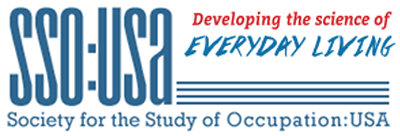
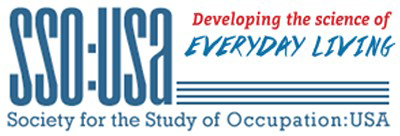
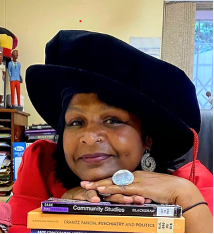 Chantal Christopher is an occupational scientist, academic, teacher, mother, and occupational therapy practitioner. Her work is infused with a justice-oriented positionality shaped by thinkers such as Edward Said, Frantz Fanon, Steve Biko, and Paulo Freire. She is a critical reader of society, the world, and the profession, situating herself at the intersection of scholarship and activism.
Chantal Christopher is an occupational scientist, academic, teacher, mother, and occupational therapy practitioner. Her work is infused with a justice-oriented positionality shaped by thinkers such as Edward Said, Frantz Fanon, Steve Biko, and Paulo Freire. She is a critical reader of society, the world, and the profession, situating herself at the intersection of scholarship and activism.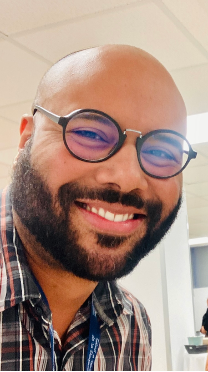 Rodolfo Morrison J. is an occupational therapist, occupational scientist, researcher, and professor. A Black, Latin American, queer, cisgender man, he has oriented his trajectory toward exploring the foundations of occupation through critical perspectives and pragmatism. His identity, lived experience, and condition as a migrant have shaped a research practice committed to social justice, the recognition of marginalized voices, and interregional dialogue.
Rodolfo Morrison J. is an occupational therapist, occupational scientist, researcher, and professor. A Black, Latin American, queer, cisgender man, he has oriented his trajectory toward exploring the foundations of occupation through critical perspectives and pragmatism. His identity, lived experience, and condition as a migrant have shaped a research practice committed to social justice, the recognition of marginalized voices, and interregional dialogue.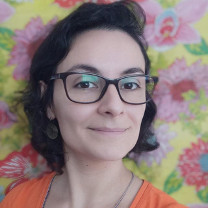 Aline Godoy-Vieira
Aline Godoy-Vieira